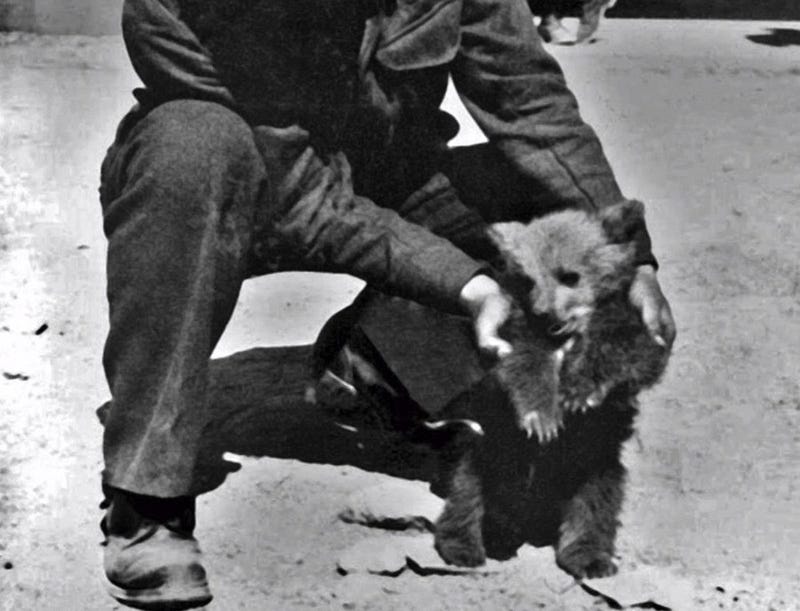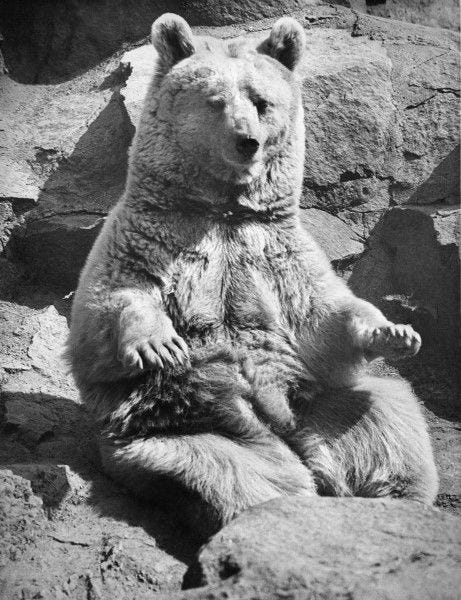 he Second World War changed the definition of ‘normal’. Due to the nature of the conflict unconventional tactics had to be used to gain an advantage over the enemy. This led to the development of many new technologies, tactics, and events that before the war would’ve made no sense. Such is the story of Kapral (Corporal) Wojtek.
he Second World War changed the definition of ‘normal’. Due to the nature of the conflict unconventional tactics had to be used to gain an advantage over the enemy. This led to the development of many new technologies, tactics, and events that before the war would’ve made no sense. Such is the story of Kapral (Corporal) Wojtek.
The story of Wojtek started with the invasion of Poland by the Soviet Union. After a brave final stand, the Polish nation was split in half by the Soviet Union and the Third Reich in 1939. The period that followed was one of terror for the Polish people where many crimes against humanity were committed. In one of my recent articles, I talk about the situation in Poland after the Soviet takeover mainly focusing on one of the biggest crimes against humanity committed by the Soviets while in control of Poland.
Poland’s Bloody Forest
During the upcoming years, much of the Polish population would be displaced with many being exiled from Poland into the Soviet Union. Once in the Soviet Union, many would go south to reach a refugee camp set up for the Polish exiles in Tehran, Iran. On their way to the camp, a set of refugees came across a small boy at a train station in Hamadan, Iran. He had with him a small bear cub which he retrieved after the mother of the cub was shot by a hunter. One of the civilians travelling down to the camp, eighteen-year-old Irena Bokiewicz, the great-niece of famous Polish General Bolesław Wieniawa-Długoszowski, decided to take the small cub into her care.

The cub would be cared for by Irena for the next 3 months until a lack of resources prompted her to donate the cub to the 2nd Transport Company (later becoming the 22nd Artillery Supply Company). The soldiers of the 2nd Transport Company would give the bear the nickname of Wojtek which is a shortened version of the old Slavic name “Wojciech” which means “Happy Warrior”.
Some hardships were encountered at first due to the young cub having problems with swallowing meaning that his carer had to feed him with condensed milk through an old vodka bottle. After a while, he would grow up, and his diet would be changed to include fruits and honey.
Beer would be used as a prize for good performance or behaviour which henceforth became the bear’s favourite drink. Later on, to emulate his fellow compatriots, he would smoke/eat cigarettes and drink coffee in the morning along with his compatriots. During cold nights Wojtek would also sleep with the soldiers providing some warmth for the troops.
Later on into his service, he would be taught to salute and march with the troops which he did on his two hind legs along with the 22nd Artillery Supply Company which was his home for the whole of the time, he served under the Polish Army
Becoming a Soldier
The Polish army in exile wouldn’t stay in hiding for long while their country was occupied. As a result, they linked with the British Army in Egypt to aid them in their effort to retake Italy. Mascots were disallowed under army regulations; therefore, to keep Wojtek as part of the Company they officially enlisted him into the Polish army. As an enlisted soldier, he would be paid and receive a rank and serial number. He lived with the other men in a tent or in a special wooden crate designated for his transport which would be moved around in a truck in case the Company needed to change location.

As part of his service, Wojtek took part in the famous Battle of Monte Cassino. This is where he would earn his rank of Corporal by helping the Polish troops in their efforts. Seeing his fellow comrades moving ammunition, he too started moving ammunition crates of ammunition as well as individual shells. Some accounts say that Wojtek would move around crates that required 4 men to move and throughout his whole service he wouldn’t drop a single shell. Subsequently, in response to his popularity, the head of the Polish Army allowed the 22nd Company to change their emblem to a depiction of a bear carrying a shell which still stands to this day.
After World War Two Wojtek would go along with the 22nd Artillery Supply Company to Scotland where he would be stationed at a base near a small village called Hutton. During the years between the end of the war and the demobilization of the army in 1947, Wojtek would become a local celebrity. As a result, he would be donated to Edinburgh zoo after the Polish Army in exile dissolved. Here he would spend the rest of his life often being visited by soldiers from his old company who would throw beer and cigarettes over the fence for him to drink and eat.

Student of Philosophy, Politics and Economics. History fanatic. Contact: aneculaeseicg@gmail.com





